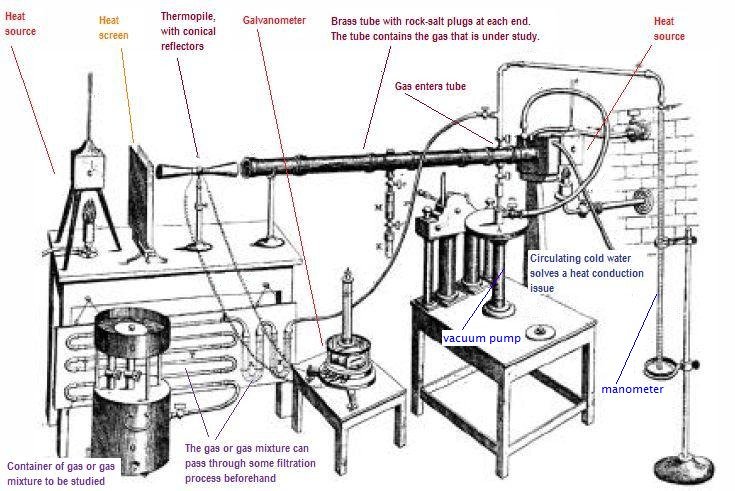Further, I purified the air of the laboratory so well that its absorption was less than unity; the purified air was then conducted through two U-tubes filled with fragments of clean glass moistened with distilled water. Its neutrality when dry proved that all prejudicial substances had been removed from the air; and in passing throuugh the U-tubes it could have contracted nothing save the pure vapour of water. The vapour thus carried into the experimental tube exerted an absorption 90 times as great as that of the air which carried it.The emphasis is Tyndall's, and the excerpt comes from this article demonstrating water vapor's extraordinary capacity to absorb infrared radiation. Other highlights include papers on refraction (or 'refrangibility' if you like old-timey science), demonstrating thermal transfer at different parts of the spectrum (note the peak in the infrared in table 1), and quantifying the thermal capacity of infrared-absorbing (also known as "greenhouse"; note tables 1 and 2) gases.
All of which is really just to reiterate one of my favorite student / concerned scientist / chatting-about-climate-with-the-skeptical talking points: our understanding of climate's relationship to greenhouse gases is very, very old. Tyndall was showing that "carbonic acid" (CO2) was opaque to infrared in 1862, alongside other such notable gases as NOx and "marsh gas" (methane). That a radical increase in the atmosphere's concentration of these *very* absorptive gases would lead to additional warming is about as elementary of a scientific postulate as can be.

No comments:
Post a Comment